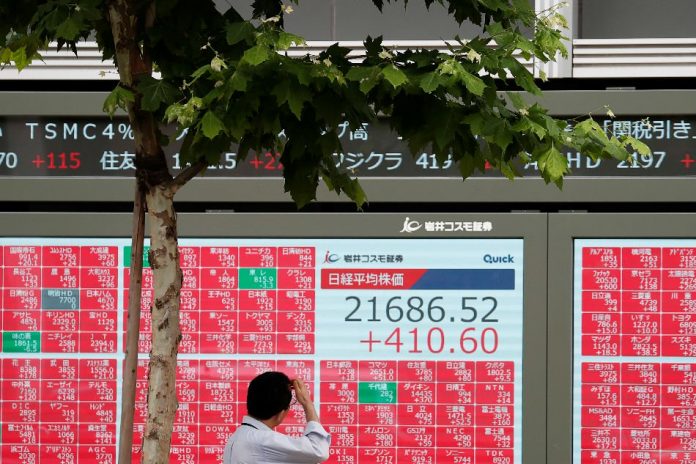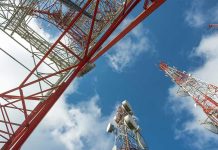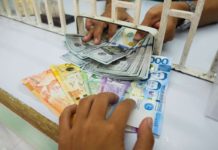
SYDNEY – Asian shares flat-lined on Wednesday as worries about global recession and endless trade wars wrestled with hopes for more monetary and fiscal stimulus to keep growth going.
Much depends on what the Federal Reserve does with U.S. interest rates, making markets hyper-sensitive to the minutes – due later on Wednesday – of its most recent meeting.
Traders are also awaiting the central bank’s annual Jackson Hole seminar later this week and a Group of Seven summit this weekend for clues on what additional steps policymakers will take to boost economic growth.
Morgan Stanley economist Ellen Zentner advised clients to watch for the use of the word “somewhat” when Fed Chair Powell describes further policy adjustments.
“Acknowledgment that downside risks have increased with no characterization of ‘somewhat’ could be taken as confirmation that it is likely the Fed makes a larger cut in September,” Zentner wrote in a note.
Futures are fully priced for a quarter-point cut in rates next month, and over 100 basis points of easing by the end of next year.
With so much riding on the Fed, investors were understandably anxious. MSCI’s broadest index of Asia-Pacific shares outside Japan dithered either side of flat after three straight days of gains.
Japan’s Nikkei slipped 0.3 percent, while Shanghai blue chips added a slim 0.06 percent. Faring a bit better were E-Mini futures for the S&P 500, which firmed 0.3 percent, while EUROSTOXX 50 futures edged up 0.1 percent.
Political turmoil in Hong Kong, Britain and Italy has also heightened uncertainties for investors. The prospect of new elections in Italy after the resignation of Prime Minister Giuseppe Conte added to jitters, sending Italian sovereign bond yields sliding.
China’s biggest e-commerce company Alibaba Group Holding has delayed its up to 15 billion US dollars listing in Hong Kong amid the political unrest.
President Donald Trump again showed no signs of backing down in his tussle with China, declaring on Tuesday a confrontation was necessary even if it caused short-term harm to the U.S. economy.
His strongly-worded remarks came hours before his government announced approval of an 8 billion US dollars sale of Lockheed Martin F-16 fighter jets to Taiwan, a move sure to draw Beijing’s ire and further dim prospects for a quick trade deal. (Reuters)







